
Nuku Island: A Tropical Gem in Tonga
Nuku Island is a stunning tropical paradise in Tonga. The island boasts pristine white sandy beaches and crystal-clear turquoise waters, making it an idyllic spot for relaxation and adventure. The soft waves gently lap against the shore, creating a soothing soundtrack to your day. The island is small but packed with natural beauty. Palm trees sway in the breeze, providing shade and a perfect backdrop for your holiday photos. Snorkeling and swimming in the warm waters reveal a vibrant underwater world teeming with colorful fish and coral reefs. Nuku Island is also a great place for a picnic. You can bring your own food and enjoy a meal with a view. The island is easily accessible by boat, making it a popular day trip for those looking to escape the bustle and experience a slice of paradise. Local guides often offer tours, ensuring you get the most out of your visit while learning about the island's history and culture.
Local tips in Nuku Island
- Bring your own food and drinks as there are no restaurants on the island.
- Wear reef-safe sunscreen to protect the coral reefs while swimming or snorkeling.
- Book a local guide to learn more about the island’s culture and history.
- Pack a hat and sunglasses to protect yourself from the tropical sun.
- Check the weather forecast before planning your trip as boat access can be affected by rough seas.
- Bring snorkeling gear to explore the vibrant underwater world.
Nuku Island: A Tropical Gem in Tonga
Nuku Island is a stunning tropical paradise in Tonga. The island boasts pristine white sandy beaches and crystal-clear turquoise waters, making it an idyllic spot for relaxation and adventure. The soft waves gently lap against the shore, creating a soothing soundtrack to your day. The island is small but packed with natural beauty. Palm trees sway in the breeze, providing shade and a perfect backdrop for your holiday photos. Snorkeling and swimming in the warm waters reveal a vibrant underwater world teeming with colorful fish and coral reefs. Nuku Island is also a great place for a picnic. You can bring your own food and enjoy a meal with a view. The island is easily accessible by boat, making it a popular day trip for those looking to escape the bustle and experience a slice of paradise. Local guides often offer tours, ensuring you get the most out of your visit while learning about the island's history and culture.
When is the best time to go to Nuku Island?
Iconic landmarks you can’t miss
Tanoa International Dateline Hotel
Experience Tongan hospitality at Tanoa International Dateline Hotel, your perfect base for exploring the beauty of Tonga.

Mapu'a Vaea Blowholes
Experience the breathtaking spectacle of Mapu'a Vaea Blowholes, where the ocean meets rugged cliffs in a stunning display of nature's power.
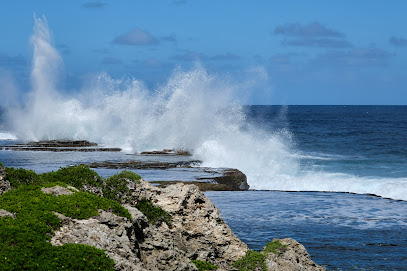
Tongatapu
Explore the natural beauty and rich cultural heritage of Tongatapu, Tonga's largest island, where adventure and tradition await every traveler.
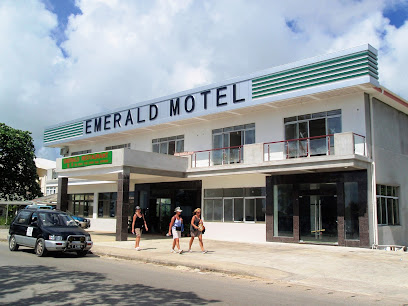
Royal Palace of Tonga
Explore the Royal Palace of Tonga, the stunning residence of the King, rich in history and cultural significance, set in beautiful Nuku'alofa.
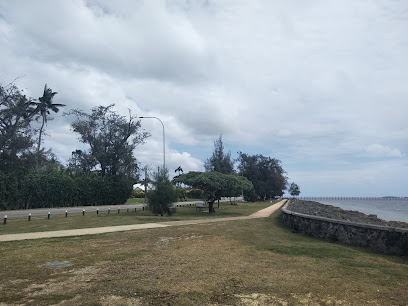
Friends Cafe
Discover the heart of Tongan cuisine at Friends Cafe in Nuku'alofa, where local flavors meet a warm, inviting atmosphere.
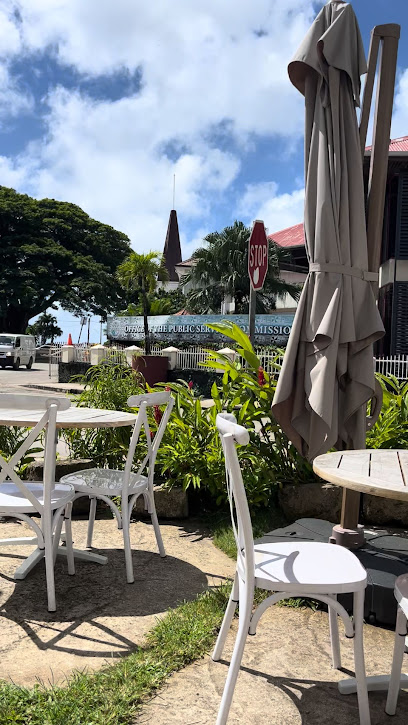
Cafe Escape
Discover Cafe Escape, Nuku'alofa's hidden gem where local flavors meet a cozy ambiance, perfect for coffee lovers and food enthusiasts alike.
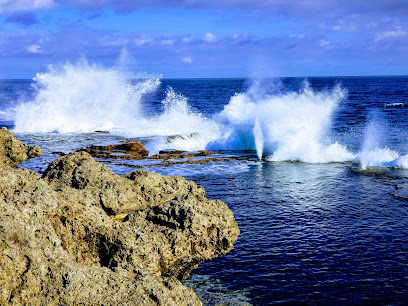
Anahulu Cave
Discover the enchanting beauty of Anahulu Cave in Tonga, where crystal-clear waters and stunning formations create a natural paradise.
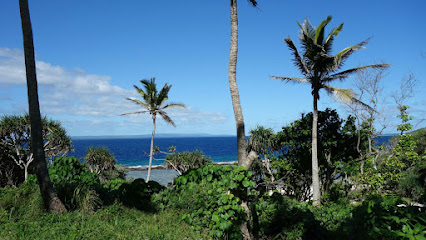
Billfish Bar and Restaurant
Experience the best of Tonga's culinary scene at Billfish Bar and Restaurant, where delicious flavors meet a vibrant atmosphere in Nuku'alofa.
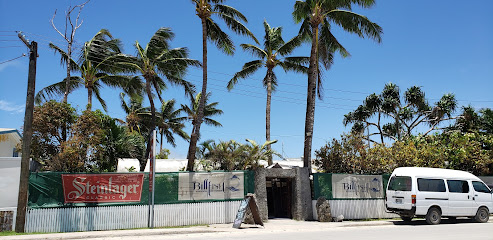
Marco's Pizza Pasta
Savor the authentic flavors of Nuku'alofa at Marco's Pizza Pasta, where delicious pizza and pasta await in a welcoming atmosphere.
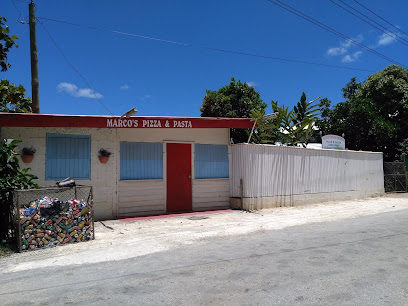
Seaview Lodge
Experience the serenity of Seaview Lodge in Nuku'alofa, where ocean views and warm hospitality blend perfectly for an unforgettable stay.

Royal Tombs
Explore the Royal Tombs in Nuku'alofa, a historical landmark rich in Tongan culture and royal heritage, offering a serene and reflective experience.
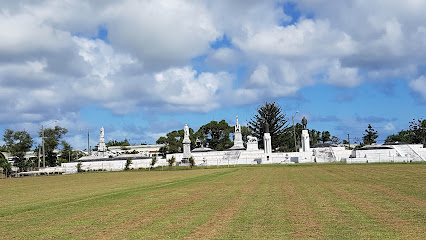
Tsunami Rock
Explore the breathtaking Tsunami Rock in Tonga, a stunning natural landmark offering incredible views and rich geological history.
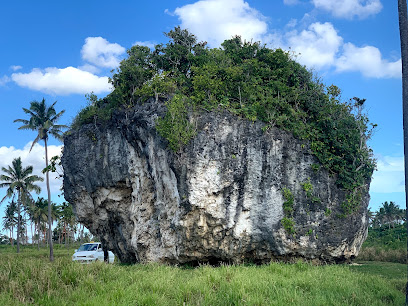
Waterfront Lodge
Discover the serene beauty of Waterfront Lodge in Nuku'alofa, Tonga, where comfort meets stunning ocean views in a tranquil paradise.
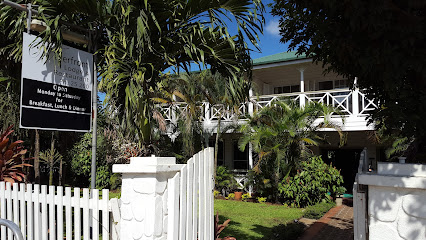
Ancient Tonga
Explore the rich history and culture of Tonga at Ancient Tonga, a unique tourist attraction in Nuku'alofa showcasing ancient artifacts and traditional crafts.
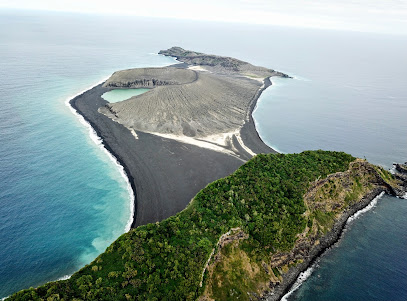
'Oholei Beach Resort
Discover the serene beauty and rich culture of Oholei Beach Resort in Lavengatonga, Tonga, where luxury meets adventure in a stunning tropical setting.
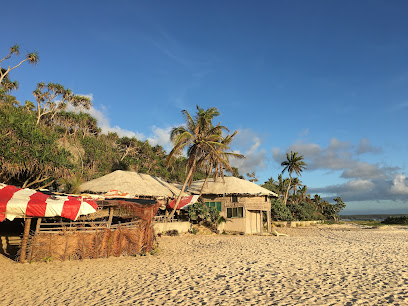
Unmissable attractions to see
ʻEua National Park
Explore the lush landscapes and diverse wildlife of 'Eua National Park, a true paradise for nature lovers and adventure seekers in Tonga.

Fefe Ho Loto Golden Sands
Experience the breathtaking beauty and tranquility of Fefe Ho Loto Golden Sands, a premier tourist attraction in Fua'amotu, Tonga.
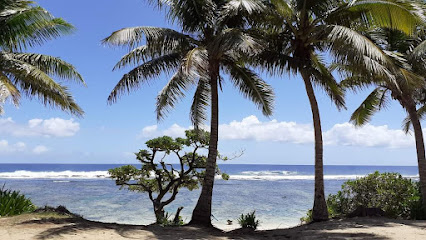
Big 'Ovava
Explore the breathtaking beauty and cultural richness of Big 'Ovava in Pangai, Tonga, a must-visit tourist attraction for unforgettable experiences.

Fangatave Cliffs Lookout Platform
Discover stunning views and serene beauty at Fangatave Cliffs Lookout Platform, a must-visit attraction in Ohonua, Tonga.

Lokupo Lookout
Experience the stunning vistas of Lokupo Lookout in Tonga, where breathtaking views and serene landscapes await every traveler.
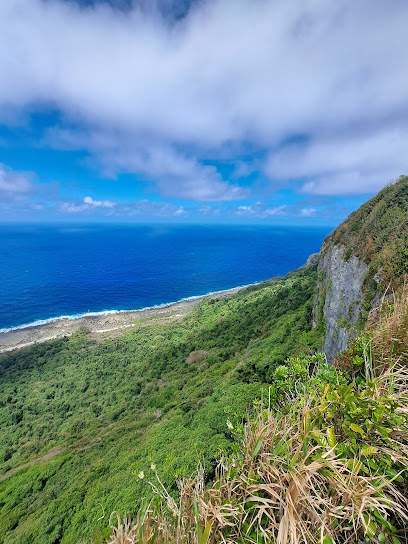
Fangatave Caves
Discover the stunning Fangatave Caves in Ohonua, a natural preserve showcasing breathtaking geological formations and diverse ecosystems.

Tonga Communication Center
Explore the Tonga Communication Center in Nuku'alofa, where tradition meets modernity in a vibrant cultural experience.

Essential places to dine
Little Italy Hotel
Experience authentic Italian cuisine and warm Tongan hospitality at Little Italy Hotel in Nuku'alofa.

Friends Cafe
Discover the cozy atmosphere and delicious local flavors at Friends Cafe in Nuku'alofa, where hospitality meets culinary delight.
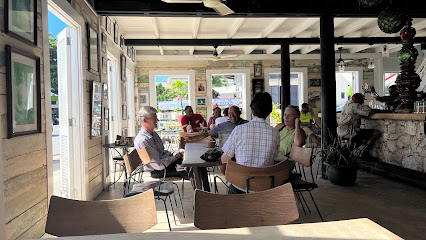
Cafe Escape
Discover Café Escape in Nuku'alofa: where Tongan culture meets delightful cuisine in a cozy atmosphere.
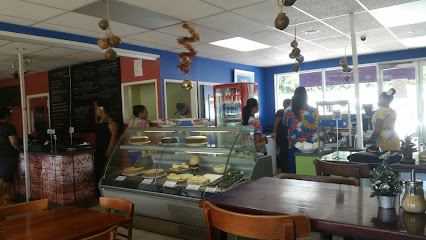
Billfish Bar and Restaurant
Discover delightful local flavors at Billfish Bar and Restaurant in Nuku'alofa—where Tongan culture meets vibrant dining.
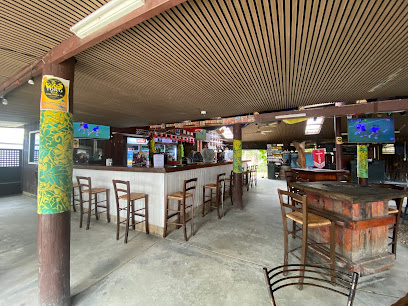
Marco's Pizza Pasta
Discover the best Italian cuisine in Tonga at Marco's Pizza Pasta - where every bite transports you to Italy amidst beautiful island vibes.
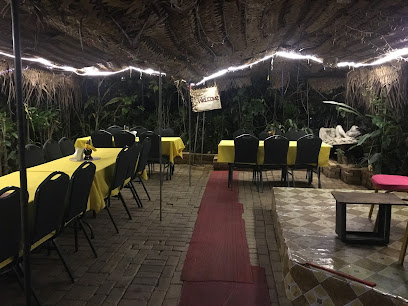
Chef Zero Restaurant
Experience the best of Tongan cuisine at Chef Zero Restaurant in Nuku'alofa—where local flavors meet exceptional service.
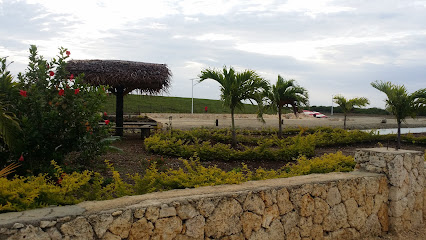
Waterfront Lodge
Experience tranquility at Waterfront Lodge - your serene retreat in Nuku'alofa, Tonga with stunning ocean views and rich cultural experiences.

The TOP Restaurant and Lounge
Experience exquisite Tongan flavors at The TOP Restaurant and Lounge in Nuku'alofa – where every meal is a celebration of culture.
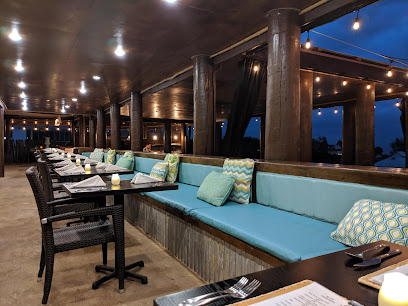
Little Italy Pizzeria Restaurant
Experience authentic Italian cuisine at Little Italy Pizzeria Restaurant in Nuku'alofa—where delicious pizza meets Tongan hospitality.
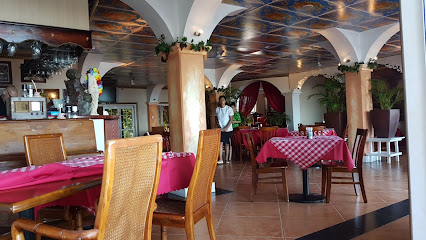
Mum's Cafe Nukualofa
Discover authentic Tongan cuisine at Mum's Cafe in Nuku'alofa – a culinary gem offering fresh flavors and warm hospitality.
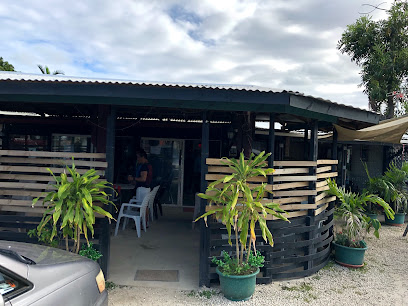
Lunarossa Restaurant
Discover authentic Italian cuisine at Lunarossa Restaurant in Nuku'alofa—where flavor meets tradition in every dish.
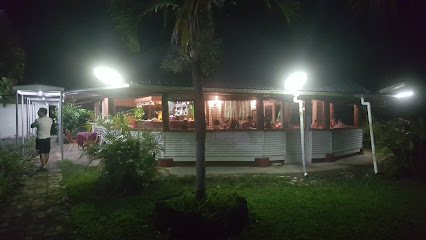
Ngutulei Bar & Restaurant
Experience authentic Tongan cuisine at Ngutulei Bar & Restaurant in Nuku'alofa - where fresh seafood meets vibrant local culture.
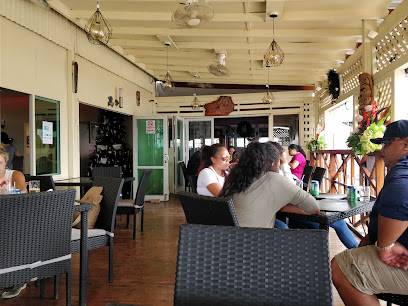
Vietnamese Cafe
Experience authentic Vietnamese cuisine in Nuku'alofa; savor delicious pho and refreshing iced coffee in a cozy atmosphere.
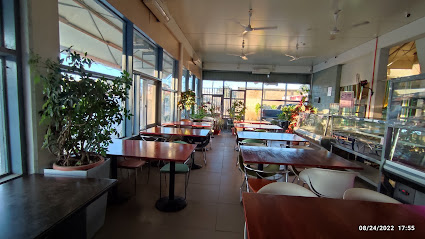
Young’s Kitchen
Experience authentic Tongan flavors at Young's Kitchen in Nuku'alofa—where every dish tells a story.
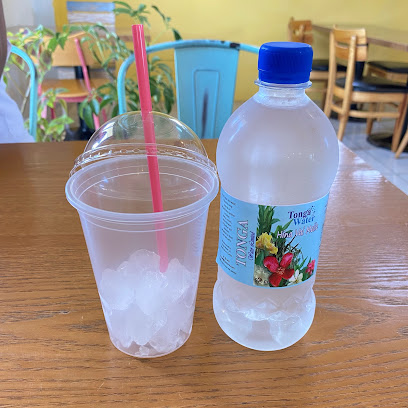
The Waterfront Cafe
Experience authentic Tongan cuisine at The Waterfront Cafe in Nuku'alofa—where stunning ocean views meet delightful local flavors.
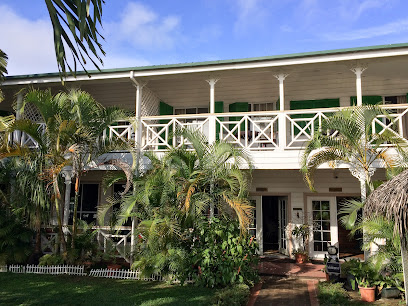
Markets, malls and hidden boutiques
Hiki 'O Tonga
Experience the essence of Tongan culture at Hiki 'O Tonga, a vibrant shopping mall in Nuku'alofa filled with local crafts and delicious dining options.
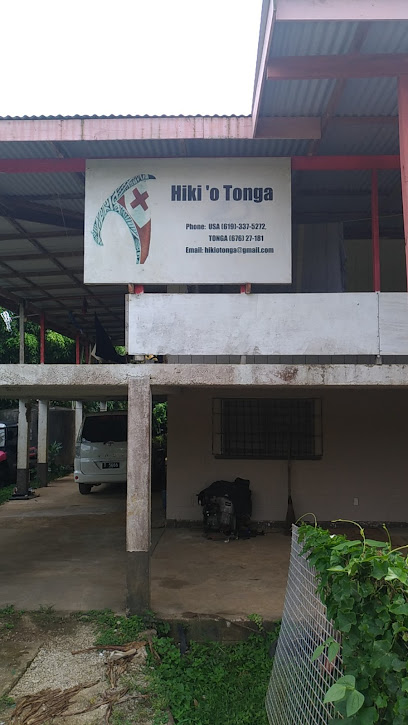
Friendly Island Bookshop
Explore the literary heart of Tonga at Friendly Island Bookshop, where stories of the islands come alive through a diverse collection of books.
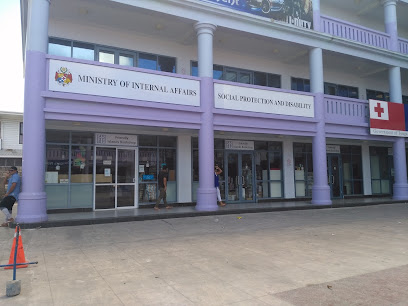
Leiola
Explore Leiola in Nuku'alofa: Your go-to destination for local and imported beers, offering a unique taste of Tonga's brewing culture.
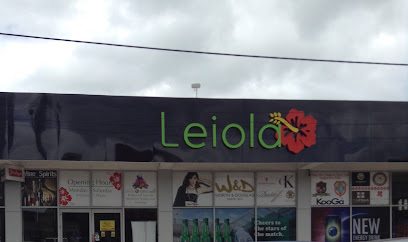
Fakafeta'i Store
Explore authentic local culture at Fakafeta'i Store, your prime destination for quality goods and Tongan hospitality in Nuku'alofa.
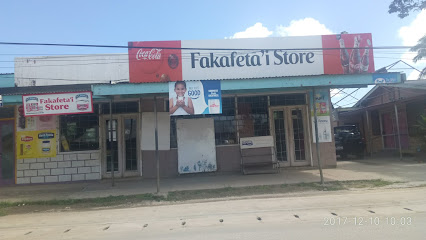
Zeal Tonga
Explore the best selection of vaporizers and accessories at Zeal Tonga, the premier vaporizer store in Nuku'alofa offering expert advice and a warm atmosphere.
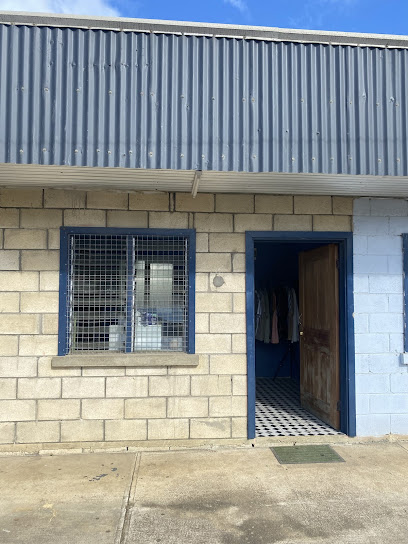
A & A Retailer (Tonga) Ltd
Explore the best of Tonga's electronics at A & A Retailer in Nuku'alofa, your go-to destination for gadgets and office supplies.
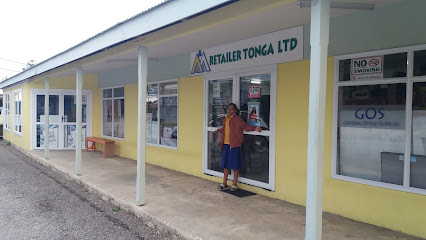
Fehoko Art Creations & The Arts of Tonga
Explore the vibrant world of Tongan art and culture at Fehoko Art Creations, a unique shopping destination in Nuku'alofa.
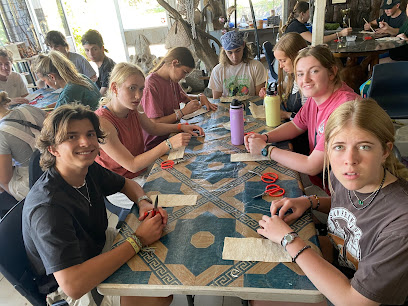
Tucker's Icecream-Eseta Tamales Shop
Experience the authentic flavors of Niutoua with delightful ice cream and traditional tamales at Tucker's Icecream-Eseta Tamales Shop.
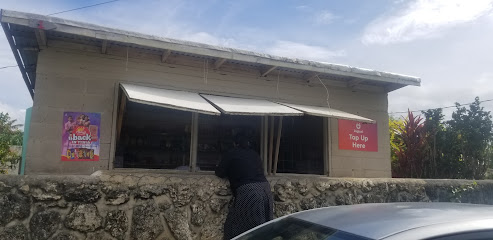
Le-Ata Tonga
Explore the vibrant fashion of Le-Ata Tonga in Nuku'alofa - where tradition meets modern style for an unforgettable shopping experience.
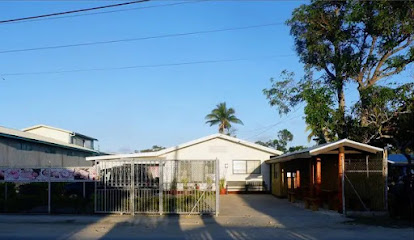
L&G Store
Explore the vibrant clothing styles at L&G Store in Nuku'alofa, where local culture meets contemporary fashion.
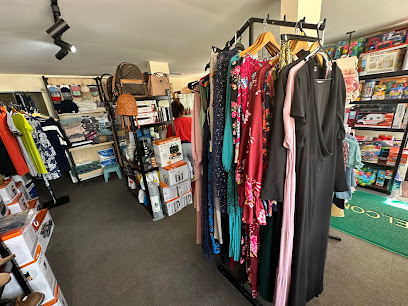
FORTUNE ISLAND SHOPPING CENTER
Discover the heart of Tongan culture at Fortune Island Shopping Center, where unique shopping meets local flavors in Nuku'alofa.
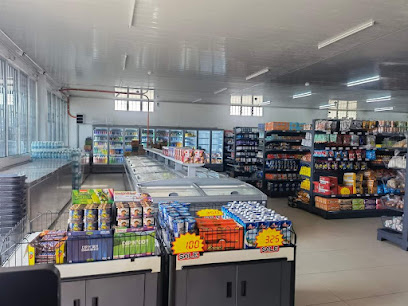
Narottam's
Discover unique Tongan apparel at Narottam's in Nuku'alofa, where local craftsmanship meets vibrant island style.
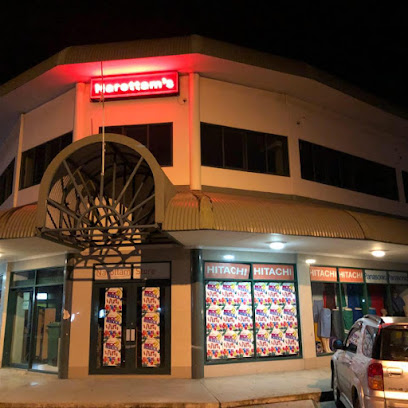
Lehualani Boutique
Discover the essence of Tongan culture through unique clothing at Lehualani Boutique in Nuku'alofa.
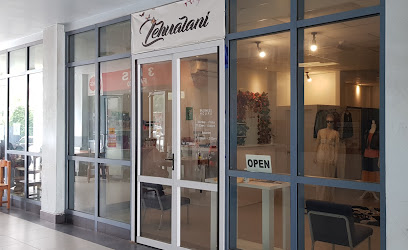
Eiko-San Clothing
Discover Tongan culture through fashion at Eiko-San Clothing, a vibrant store in Nuku'alofa offering unique garments and local handicrafts.
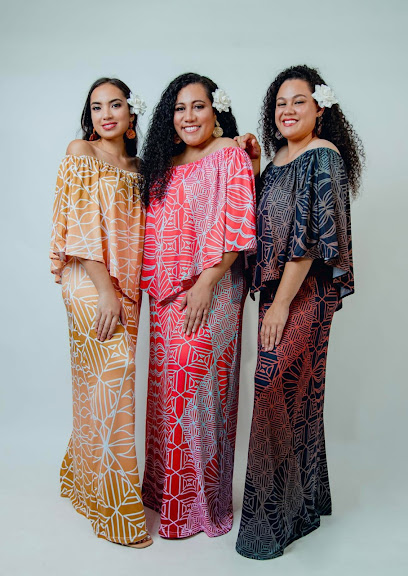
Our Shop
Explore the heart of Nuku'alofa at Our Shop, where convenience meets Tongan culture with delightful local products and warm hospitality.

Essential bars & hidden hideouts
Billfish Bar and Restaurant
Experience the vibrant flavors of Tonga at Billfish Bar and Restaurant, where local cuisine meets a relaxing bar atmosphere in Nuku'alofa.
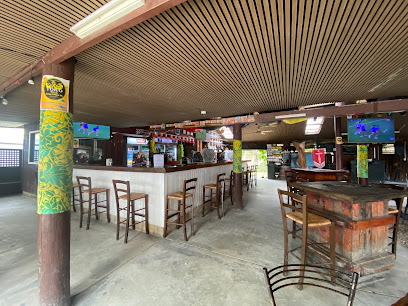
The TOP Restaurant and Lounge
Experience the vibrant flavors of Tonga at The TOP Restaurant and Lounge, a culinary haven in Nuku'alofa offering stunning views and exquisite dining.
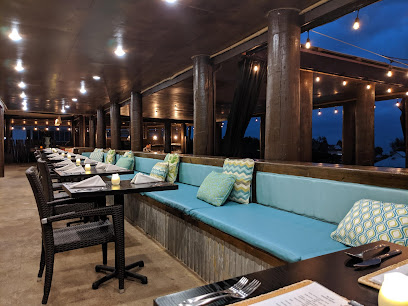
Lunarossa Restaurant
Experience the taste of Italy in Nuku'alofa at Lunarossa Restaurant, where authentic cuisine meets a warm, inviting atmosphere.
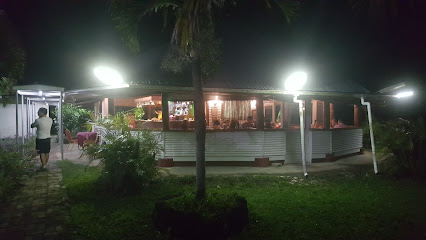
Ngutulei Bar & Restaurant
Discover the flavors of Tonga at Ngutulei Bar & Restaurant, where vibrant atmosphere meets delectable local cuisine in Nuku'alofa.
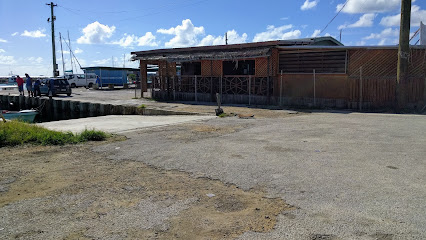
Young’s Kitchen
Discover the authentic flavors of Tonga at Young’s Kitchen, where local dishes and warm hospitality await in Nuku'alofa.
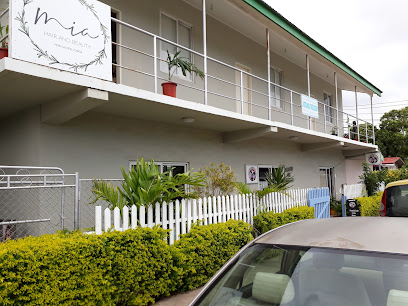
The Waterfront Cafe
Discover the flavors of Tonga at The Waterfront Cafe, where delicious cuisine meets stunning ocean views in the heart of Nuku'alofa.
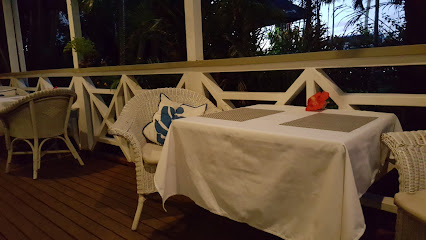
Frangipani - Korean Restaurant/Karaoke
Discover the vibrant tastes of Korea at Frangipani, Nuku'alofa's premier Korean restaurant offering delicious dishes and lively karaoke.
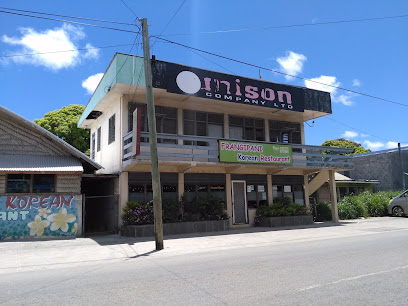
Nauti Ruby's Bar & Restaurant
Experience the vibrant flavors of Tonga at Nauti Ruby's Bar & Restaurant, where stunning ocean views meet delightful local cuisine.
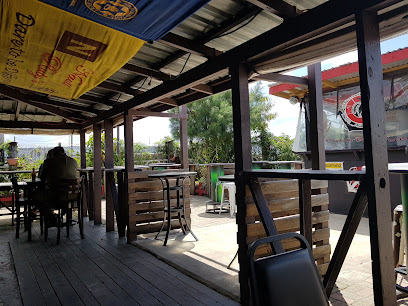
Reload Bar
Reload Bar in Nuku'alofa offers a lively atmosphere, refreshing drinks, and a taste of local culture in the heart of Tonga.
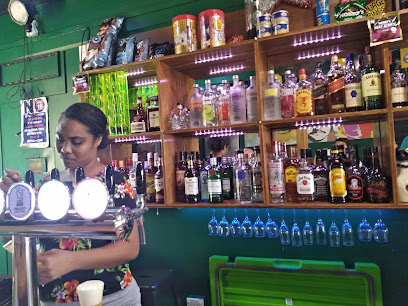
Tali'eva Inn Bar
Discover the vibrant atmosphere of Tali'eva Inn Bar in Nuku'alofa, where local culture meets relaxation in a charming setting.
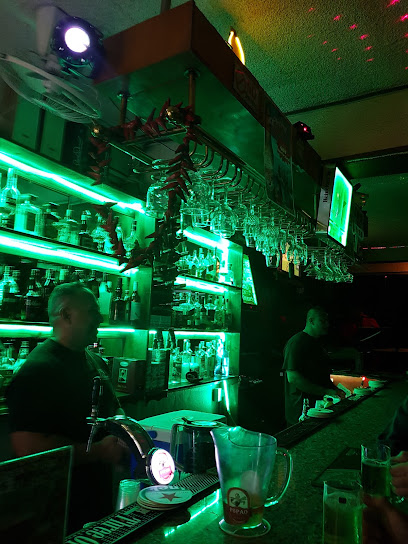
12 Seafood Restaurants
Experience the fresh tastes of the Pacific at this beloved seafood restaurant in Nuku'alofa, where culinary traditions meet oceanic delights.
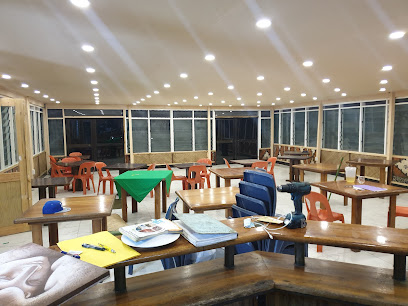
Ifo ifo burger bar
Experience the best burgers in Nuku'alofa at Ifo Ifo Burger Bar, where local flavors meet international favorites for an unforgettable meal.

Big Mama's Bar
Experience the vibrant atmosphere of Big Mama's Bar on Pangaimotu Island, where tropical cocktails and live music meet stunning ocean views.
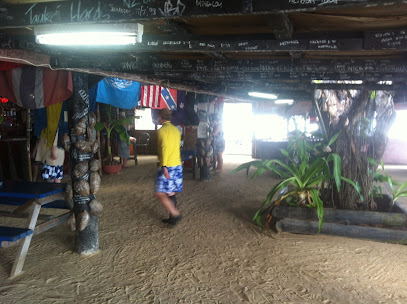
Momma’sHarbourviewRestaurant
Experience the authentic flavors of Tonga at Momma’s Harbourview Restaurant, a culinary highlight in Nuku'alofa with stunning harbor views.
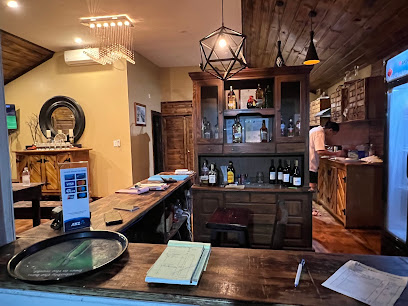
Local Phrases about Nuku Island
-
- HelloMalo e lelei
[mah-loh eh leh-leh] - GoodbyeNofo a
[noh-foh ah] - YesIo
[ee-oh] - NoʻIkai
[ee-kai] - Please/You're welcomeFakaʻilonga
[fah-kah-ee-long-gah] - Thank youMālō
[mah-loh] - Excuse me/SorryFakamolemole
[fah-kah-moh-leh-moh-leh] - How are you?ʻOku ʻoatu haʻa?
[oh-koo oh-ah-too hah-ah] - Fine. And you?ʻOua. Pehe koe?
[oh-wah. peh-heh koh-eh] - Do you speak English?Ko e totongi ʻi he lea fakapālangi?
[koh eh toh-tong-ee ee heh leh-ah fah-kah-pah-lahng-ee] - I don't understandʻIkai lava ʻoku fahamahaki
[ee-kai lah-vah oh-koo fah-hah-mah-hah-kee]
- HelloMalo e lelei
-
- I'd like to see the menu, pleaseKāpau 'e 'ai ha meini, fakamolemole
[kah-pow eh ah-ee hah meh-ee-nee, fah-kah-moh-leh-moh-leh] - I don't eat meatʻIkai 'e 'ai me'a
[ee-kai eh ah-ee meh-ah] - Cheers!Mālo
[mah-loh] - I would like to pay, pleaseKāpau 'e totongi, fakamolemole
[kah-pow eh toh-tong-ee, fah-kah-moh-leh-moh-leh]
- I'd like to see the menu, pleaseKāpau 'e 'ai ha meini, fakamolemole
-
- Help!Malō
[mah-loh] - Go away!Hiki atu!
[hee-kee ah-too] - Call the Police!Fonua ki he Poilisi!
[foh-noo-ah kee heh poy-lee-see] - Call a doctor!Fonua ki he tokotaha!
[foh-noo-ah kee heh toh-koh-tah-hah] - I'm lostʻOku neesi
[oh-koo neh-eh-see] - I'm illʻOku totonu
[oh-koo toh-toh-noo]
- Help!Malō
-
- I'd like to buy...Kāpau 'e fakataha...
[kah-pow eh fah-kah-tah-hah] - I'm just lookingKo e tāmālaki
[koh eh tah-mah-lah-kee] - How much is it?Fakaha ki he taʻu?
[fah-kah-hah kee heh tah-oo] - That's too expensiveKo e hala pē
[koh eh hah-lah peh] - Can you lower the price?Ko e fakafoki ki he taʻu?
[koh eh fah-kah-foh-kee kee heh tah-oo]
- I'd like to buy...Kāpau 'e fakataha...
-
- What time is it?Ko e hua he hua?
[koh eh hoo-ah heh hoo-ah] - It's one o'clockKo e taha
[koh eh tah-hah] - Half past (10)Ha taha ki he ono
[hah tah-hah kee heh oh-noh] - MorningPō
[poh] - AfternoonAo
[ah-oh] - EveningAfiafi
[ah-fee-ah-fee] - YesterdayʻUa
[oo-ah] - TodayʻOku
[oh-koo] - TomorrowʻApō
[ah-poh] - 1Taha
[tah-hah] - 2Ua
[oo-ah] - 3Tolu
[toh-loo] - 4Fā
[fah] - 5Nima
[nee-mah] - 6Ono
[oh-noh] - 7Fitu
[fee-too] - 8Valu
[vah-loo] - 9Hiva
[hee-vah] - 10ʻAfulu
[ah-foo-loo]
- What time is it?Ko e hua he hua?
-
- Where's a/the...?Ko fe hoko...
[koh feh hoh-koh] - What's the address?ʻI he tānēto
[ee heh tah-nehh-toh] - Can you show me (on the map)?Ko e fakaha ki au (ʻi he māpa)?
[koh eh fah-kah-hah kee ow (ee heh mah-pah)] - When's the next (bus)?Ko e hua ke he (fetaaki)?
[koh eh hoo-ah keh heh feh-tah-ah-kee] - A ticket (to ....)Ha lipooti (ki ...)
[hah lee-poh-oh-tee kee]
- Where's a/the...?Ko fe hoko...
History of Nuku Island
-
Nuku Island, located in Tonga's Vava'u archipelago, has a rich history dating back to the early Polynesian settlers. The island is steeped in local legends and oral traditions. One such tale tells of the arrival of the first settlers who navigated the vast Pacific Ocean using only the stars and ocean currents. These early inhabitants brought with them unique cultural practices and established the foundations of what would become a thriving Polynesian society.
-
The first recorded European contact with Nuku Island occurred in the late 18th century. In 1781, Spanish explorer Francisco Mourelle de la Rúa sailed through the Vava'u group, charting the islands and noting their strategic importance. This period marked the beginning of increased European interest in Tonga, leading to subsequent visits by British explorers such as Captain James Cook. Cook’s detailed maps and journals provided valuable information about Nuku Island and its surrounding waters.
-
In the early 19th century, Christian missionaries arrived on Nuku Island, bringing with them new religious beliefs and practices. The London Missionary Society played a significant role in converting the local population to Christianity. The influence of these missionaries is still evident today, with many Tongans practicing Christianity and celebrating religious festivals. The introduction of Western education, health care, and new agricultural techniques also had a lasting impact on the island's society and economy.
-
During World War II, Nuku Island and the surrounding Vava'u archipelago gained strategic importance. The United States military used the islands as a base for operations in the Pacific theater. The presence of American troops brought significant changes to the local infrastructure, including the construction of airstrips and military facilities. This period also led to increased cultural exchange between the islanders and the American soldiers, influencing local customs and practices.
-
In recent decades, Nuku Island has become a popular destination for tourists seeking pristine beaches, vibrant coral reefs, and rich cultural experiences. Efforts to preserve the island's natural beauty and cultural heritage have led to the establishment of marine protected areas and eco-tourism initiatives. Local communities actively participate in conservation projects, ensuring that Nuku Island remains a sustainable and attractive destination for future generations.
Nuku Island Essentials
-
Nuku Island is part of the Vava'u group in Tonga. The nearest major airport is Lupepau'u International Airport (VAV) on Vava'u Island. From there, you can take a boat or ferry to Nuku Island, which is approximately a 30-minute ride. Charter boat services are also available, offering a more personalized and often quicker journey.
-
Nuku Island is small and best explored on foot. For those looking to visit nearby islands, boat rentals and charter services are available. There are no public transport options on the island itself, but most guesthouses and resorts can arrange transfers and tours. Renting a kayak is another popular way to get around and enjoy the surrounding waters.
-
The official currency of Tonga is the Tongan Pa'anga (TOP). Credit cards are accepted in some accommodations and larger establishments, but it is advisable to carry cash, especially for smaller vendors and local markets. ATMs are available in Neiafu on Vava'u Island, so it's wise to withdraw sufficient cash before heading to Nuku Island.
-
Nuku Island is generally safe for tourists. However, it is advisable to take standard precautions. Avoid leaving valuables unattended on the beach and ensure your accommodation is secure. There are no specific high-crime areas targeting tourists, but it's always best to stay vigilant and aware of your surroundings.
-
In case of emergency, dial 911 for immediate assistance. Medical facilities are limited on Nuku Island, so for serious health issues, you may need to travel back to Vava'u Island or even the main island of Tongatapu. It is recommended to have travel insurance that covers medical emergencies. For minor health issues, some guesthouses may have basic first aid supplies.
-
Fashion: Do wear modest swimwear and cover up when not at the beach. Avoid wearing revealing clothing in villages. Religion: Do respect local customs and traditions. Attend Sunday church services if invited, as it is a significant part of Tongan culture. Public Transport: N/A on Nuku Island. Greetings: Do greet locals with a smile and a friendly 'Malo e lelei' (hello). Eating & Drinking: Do try local Tongan dishes and accept food offerings graciously. Don’t refuse hospitality, as it is considered impolite.
-
To experience Nuku Island like a local, engage with the community and participate in traditional activities such as a Tongan feast or kava ceremony. Visit the local markets on nearby islands to buy fresh produce and handmade crafts. Learn a few basic Tongan phrases to enhance your interactions with locals. Don't miss snorkeling or diving in the crystal-clear waters to explore the vibrant marine life.
Nearby Cities to Nuku Island
-
Things To Do in Foa
-
Things To Do in Pangai
-
Things To Do in Nuku'alofa
-
Things To Do in Neiafu
-
Things To Do in Ha'apai
-
Things To Do in Vava'u
-
Things To Do in Kolovai
-
Things To Do in Eua
-
Things To Do in Levuka
-
Things To Do in Nausori
-
Things To Do in Suva
-
Things To Do in Rakiraki
-
Things To Do in Savusavu
-
Things To Do in Sigatoka
-
Things To Do in Labasa





